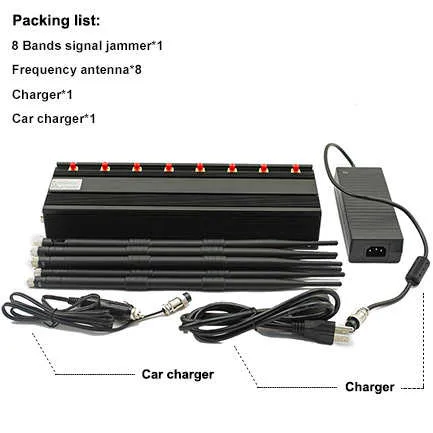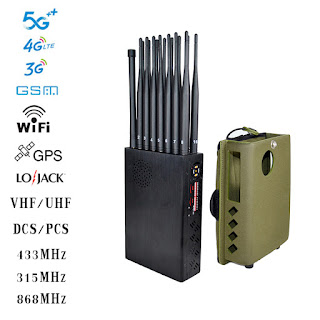Phone jammer manufacturers are working to loosen restrictions on jammers
We are convinced that this was an act of pure, unadulterated charity, uninfluenced by self-interest. Cellphone jammer maker CellAntenna Corp. is calling on U.S. lawmakers to change federal law to allow law enforcement officers to use cellphone jammers more broadly. We bet you can guess why too – and yes, it’s helpful in the fight against terrorism. Because as we all know, there are a lot of cell phone terrorists out there (in fact, for us, anyone we see with a cell phone is automatically suspect). CellAntenna said in a statement that adding cell phone jamming is "the first step in increasing profits to prevent IED attacks in the United States." How refreshing - a company with a social conscience.
The company is challenging FCC rules on cell phone jamming devices
A small Florida company is asking the Federal Communications Commission to change a rule that bans the sale of cell phone signal encryption equipment to local and state governments.
CellAntenna filed a lawsuit in the U.S. Court of Appeals for the Eleventh Circuit in Atlanta on Nov. 22 challenging the Communications Act of 1934, which is enforced by the FCC. The 1934 Act and related FCC regulations prohibit the use of cellular and radio frequency jamming devices except by federal agencies. That means local and state officials are prohibited from using such devices, which could be used to prevent terrorist attacks.
CellAntenna contends that the Communications Act and the FCC's interpretation of the law's provisions are unconstitutional because they conflict with the Homeland Security Act of 2002, which Congress passed in the aftermath of the September 11, 2001, terrorist attacks.

It is well known in intelligence and law enforcement circles that cell phones can be used to remotely detonate certain types of bombs. The electrical properties of most batteries used in today's cell phones provide enough energy to produce the necessary spark or energy to ignite detonators or modified electric matches typically used for plastic explosives. In addition, even low-end mobile phones can use built-in alarm and timing mechanisms, and even the simplest and cheapest mobile devices can be used as bomb detonation tools.
Mobile phones are believed to have been used in the 2004 Madrid train bombings. Insurgents have used them effectively to trigger street bombings in Iraq in recent years. U.S. troops in Iraq are using devices made by companies like CellAntenna that jam or block cellphone signals to protect convoys traveling through known trouble spots.
But in the United States, only federal agencies are allowed to use phone encryption devices. The law prohibits local and state law enforcement agencies from obtaining such devices as first responders to domestic terrorist attacks.
"It simply doesn't make sense that the FBI can use these devices but local and state governments, which are considered an important part of counterterrorism under the Homeland Security Act, cannot," said Howard Melamed, CEO of CellAntenna. That makes sense." "We provide weapons and other equipment to local police to protect the public, but we can't trust them to have cell phone wifi jammers devices? It doesn't make sense."
This point is a key element of CellAntenna's case against the FCC
"Whereas the FCC prohibits the sale of radio frequency and cellular jammers to state and local police departments, the Homeland Security Act consistently and repeatedly directs the Department of Homeland Security to take whatever measures are necessary to empower local law enforcement agencies and first responders in the fight against global terrorism."


Comments
Post a Comment